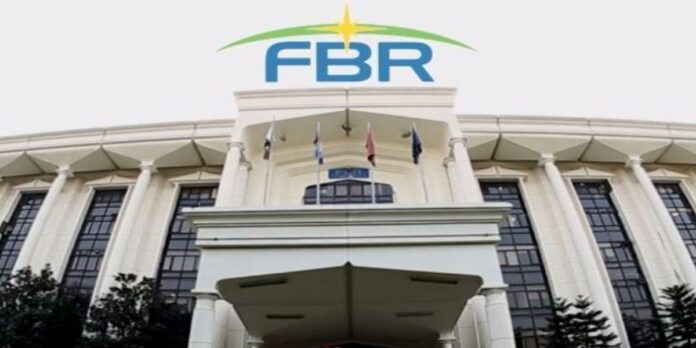Islamabad: The World Bank invited Pakistan’s Federal Board of Revenue (FBR) to showcase its successful transformation efforts as a global case study in public sector reform during the World Bank Annual Meeting held in Washington, D.C..
Federal Minister for Finance and Revenue Mr. Muhammad Aurangzeb, Chairman FBR Mr. Rashid Mahmood Langrial, Secretary Finance, Secretary Economic Affairs Division and other senior officials attended the Annual Meeting.
The Federal Minister for Finance and Revenue highlighted how Pakistan has successfully executed one of its most ambitious institutional transformations in its recent history, rebuilding its tax system across people, processes, and technology under the direct guidance and ownership of the Prime Minister of Pakistan.
He underscored that the transformation plan is homegrown, encompasses all critical areas of reforms and enjoys full support of the Prime Minister and the Federal Cabinet.
The plan is already delivering clear early wins and visible markers of turnaround of revenue administration, the Minister said.
The Minister emphasized that these reforms, while already contributing to visible improvement in macroeconomic indicators along with revenue administration reforms, will lay the foundation for sustained and long-term economic growth.
In his presentation, Chairman FBR showcased Pakistan’s remarkable achievement in enhancing the tax-to-GDP ratio from 8.83% in FY 2023–24 to 10.33% in FY 2024–25, marking the strongest single-year improvement in 23 years.
He credited this turnaround to a homegrown, data-led plan focusing on transparency, efficiency and compliance.
The Chairman explained that the transformation journey began with an eight-week planning sprint in 2024, involving input from field officers across Pakistan and supported by a dedicated Delivery Unit. Unlike past reform efforts managed in isolation, this plan was fully owned by the Prime Minister and the entire Cabinet.
He further noted that technology and digitalization, while vital, are not silver bullets. He added that digital interventions initiate transformation but achieving lasting change requires structural reform.
He further explained how the FBR’s holistic transformation plan covered various areas including processes, technology and people.
The presentation also previewed IRIS 3.0, FBR’s next-generation digital tax platform designed to simplify tax filing through pre-filled data and automated workflows, he said.
He added that the FBR emphasized the reform’s success lies in combining digital tools with process and governance redesign, rather than viewing technology as a standalone solution.
The session was an engaging interactive discussion with delegates from other countries and development partners.
Egypt’s Minister of Finance, Mr. Ahmed Kouchouk, lauded Pakistan’s effort as “the right way to do reforms”, and a model for other countries noting that in his ten years of experience with the World Bank, he had not witnessed a more powerful case presentation on tax reform.
He emphasized that Pakistan’s success was rooted in distinct homegrown nature and comprehensive support from all tiers of government.
Participants also discussed the challenges and political-economy complexities of implementing such an ambitious agenda.
It was explained that sustained leadership and coordination from the Prime Minister, Finance Minister and the Cabinet were key enablers of the reform’s success.
The dialogue highlighted four key lessons from Pakistan’s experience: homegrown planning with simultaneous implementation; top-level political ownership, an empowered internal transformation office; and the need for complementary people and process infrastructure alongside digital tools.
World Bank officials, including Mr. Sandeep Mahajan, Middle East, North Africa, Afghanistan, and Pakistan (MNAAP) Regional Practice Director Prosperity, commended Pakistan’s reform success.
He remarked that Pakistan’s case study should be globally showcased as an example of transformation efforts.
He concluded that Pakistan’s case study can an excellent opportunity for South-South learning in area of domestic resource mobilization to finance the expedited development.
The meeting concluded with an enthusiastic round of applause from all participants, marking a proud moment for Pakistan and a global recognition of its ongoing efforts toward building a transparent, efficient, and citizen-centric revenue administration. –Agencies






